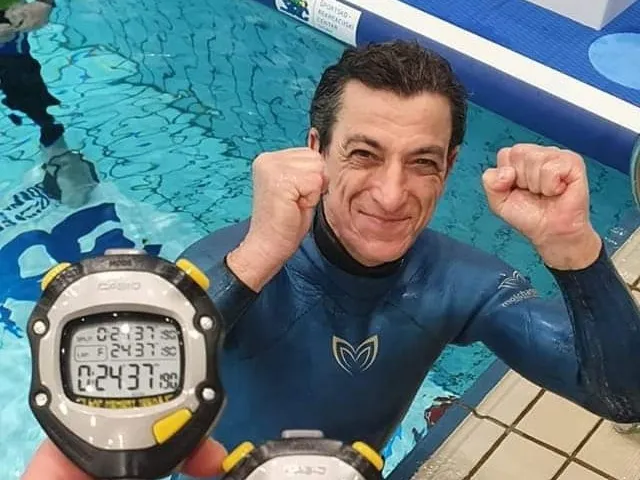In March 2021, Croatian freediver Budimir Šobat shattered expectations—and a world record—by holding his breath underwater for an astonishing 24 minutes and 37 seconds. This feat, completed in a controlled environment with prior oxygenation, was officially recognized by Guinness World Records. Šobat, who trains extensively in both physical and mental endurance, used hyperventilation with pure oxygen before the attempt, a legal and strategic method in static apnea record attempts.
This record is not just a demonstration of lung capacity, but also of psychological discipline. Freedivers must battle rising levels of carbon dioxide and the natural panic response, requiring years of mental conditioning and respiratory training. Šobat, a former bodybuilder, shifted to freediving to raise awareness for people with autism, including his daughter, turning his record into a platform for social impact. His achievement redefines the human limits of breath-hold endurance and brings visibility to important causes.
Beyond its awe factor, Šobat’s record contributes to science by offering data on hypoxia tolerance and the body’s physiological adaptations under extreme conditions. Medical researchers and sports scientists alike study such performances to understand oxygen conservation, the mammalian dive reflex, and potential applications for survival training and medical treatments. His dive is more than a personal milestone—it’s a breath of possibility for both sport and science.

